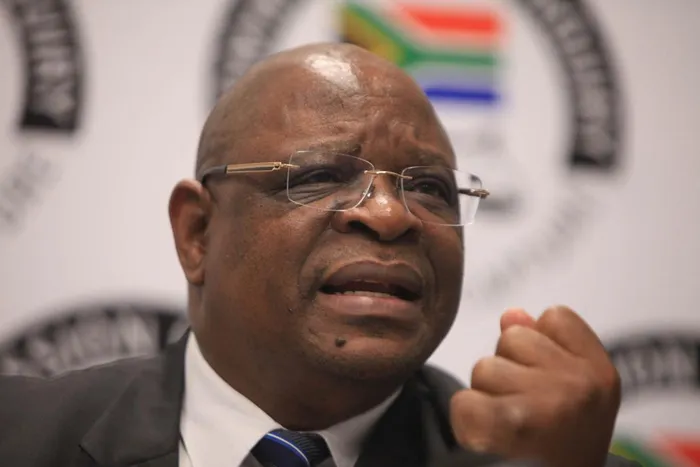Zondo report done and dusted: What has it achieved?

Political analyst Professor Sipho Seepe said the crucial question to be asked is: What was the commission intending to achieve? File Picture: Chief Justice Raymond Zondo. Picture: Nhlanhla Phillips African News Agency(ANA).
Durban - The final report into the Zondo Commission’s inquiry into state capture was handed to President Cyril Ramaphosa on Wednesday night but critics have questioned whether the commission went after certain individuals instead of following the evidence.
The inquiry, headed by Chief Justice Raymond Zondo, cost more than a billion rand and ran over four years as South Africans looked for answers as to how state capture was made possible and where the guardians of democracy were when all of the looting was taking place.
Political analyst Professor Sipho Seepe said the crucial question to be asked is: What was the commission intending to achieve?
“The commission was there to help us understand what went wrong and was meant to beef up systems that let the country down. It was not meant to arrest people and find fault with individuals, but the commission found itself as part of a factional battle within the ANC. It was reduced to a platform and forum of trying to purge certain people,” Seepe said.
He said people who were implicated at the commission did not get an opportunity to cross-examine those making the accusations.
“When you have a narrative that had been created before the commission started, then it was easy to say that those who have been implicated are corrupt, even if there was no evidence provided.”
Seepe said Justice Zondo had been advised ahead of the inquiry to not make the process about former president Jacob Zuma, but it became about Zuma and those associated with him.
“The focus should have been on faults in the system, but it became about Zuma and (Justice) Zondo allowed his frustration with Zuma to result in detention without trial in a democracy.”
Seepe said the inquiry, by focusing on Zuma and other individuals, did not look at state capture at a broader level.